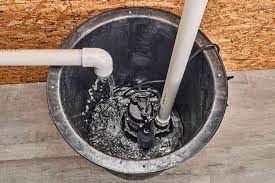A basement can be a valuable asset for homeowners, providing extra living space, storage, or housing essential home systems. However, basements are also prone to water damage, especially during heavy rains or flooding. This is where sump pumps come into play. Sump pumps are crucial devices designed to keep basements dry and protected. In this article, we will explore the importance of sump pumps and how they safeguard your basement from potential water damage.
One of the primary functions of a sump pumps is to remove excess water that accumulates in the basement. When heavy rains or flooding occur, water can seep into the basement, potentially causing structural damage, mold growth, and damage to valuable possessions. A sump pump is installed in a pit, commonly known as a sump pit, located in the lowest part of the basement. As water enters the pit, the sump pump activates, pumping the water out and away from the foundation of the house.
By keeping the basement dry, sump pumps help prevent costly water damage and the need for extensive repairs. They serve as a proactive measure to safeguard your home’s foundation and structural integrity. Without a functioning sump pump, water can accumulate and lead to cracks in the foundation, weakening the structure of the entire building.
Furthermore, sump pumps play a crucial role in preventing mold and mildew growth. Excess moisture in basements provides an ideal environment for mold spores to thrive. Mold not only causes unpleasant odors but can also pose serious health risks to occupants, particularly those with respiratory conditions or allergies. By promptly removing water from the basement, sump pumps help control humidity levels and inhibit the growth of mold and mildew.
Sump pumps are particularly important for homeowners residing in flood-prone areas or regions with a high water table. These areas are more susceptible to basement flooding, making sump pumps an essential component of a comprehensive water management system. Installing a sump pump gives homeowners peace of mind, knowing that their basement is protected against potential water damage.
Regular maintenance and inspection of sump pumps are crucial to ensure their optimal performance. Homeowners should periodically check the sump pump to ensure it is in proper working condition. This includes testing the pump, cleaning the sump pit, and ensuring that the discharge pipe is clear and directing water away from the foundation.
In short, the importance of sump pumps cannot be overstated when it comes to keeping your basement dry and protected. They are a valuable investment for homeowners, providing a proactive defense against potential water damage, mold growth, and structural problems. If you have a basement or reside in an area prone to flooding, consider installing a sump pump to safeguard your home and ensure peace of mind during heavy rains and flooding events.


